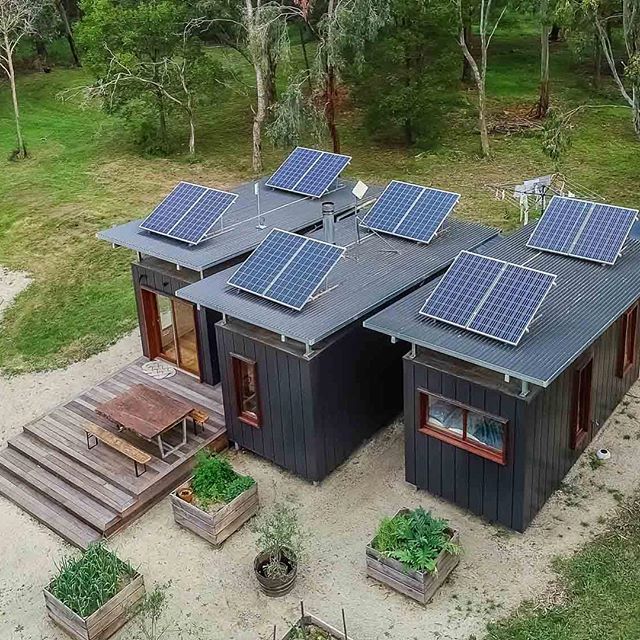In a world increasingly focused on sustainability and self-sufficiency, off-the-grid living has emerged as a compelling lifestyle choice. Embracing this lifestyle often involves reducing reliance on traditional utilities and embracing renewable energy sources. Shipping container homes, with their modular design and adaptability, are uniquely suited for off-the-grid living, offering an innovative canvas for sustainable energy solutions. Let’s explore how shipping container homes can be transformed into eco-friendly sanctuaries by harnessing sustainable energy.
The Appeal of Off-the-Grid Living
Off-the-grid living entails living independently from public utilities such as water, electricity, and gas. It appeals to individuals seeking greater autonomy, reduced environmental impact, and resilience in the face of uncertain energy futures. Shipping container homes are well-suited to this lifestyle, offering a blank slate for integrating renewable energy technologies.
Solar Power: The Cornerstone of Sustainable Energy
One of the most popular and effective ways to power shipping container homes off-the-grid is through solar energy. Solar panels can be mounted on the roof of container homes to harness the abundant energy from the sun. This energy is converted into electricity through photovoltaic cells, providing a clean and renewable source of power.
Solar power is particularly advantageous for off-the-grid living because it can be stored in batteries for use during cloudy days or at night when sunlight is not available. This energy independence allows container homeowners to enjoy modern amenities without relying on the grid.
Wind Energy: A Complementary Energy Source
In addition to solar power, wind energy can complement a shipping container home’s energy system, especially in areas with consistent wind patterns. Small-scale wind turbines can be installed near the container home to generate electricity from wind. Like solar power, wind energy can be stored in batteries for continuous power supply.
Combining solar and wind energy systems maximizes energy production and enhances reliability, ensuring that container homes remain powered regardless of weather conditions.
Energy Efficiency and Conservation
Beyond renewable energy generation, energy efficiency and conservation play vital roles in off-the-grid living. Shipping container homes can incorporate energy-efficient appliances, LED lighting, and advanced insulation to minimize energy consumption. Passive design strategies such as orientation for optimal solar gain and natural ventilation further reduce energy needs.
Water Management
Off-the-grid container homes also prioritize sustainable water management. Rainwater harvesting systems can collect rainwater from the roof for non-potable uses like watering plants and flushing toilets. Greywater recycling systems can treat and reuse wastewater from sinks and showers for irrigation or other purposes, reducing water demand and environmental impact.
Challenges and Considerations
While off-the-grid living offers numerous benefits, it’s not without challenges. Designing and implementing a sustainable energy system requires careful planning, budgeting, and technical expertise. Factors like location, climate, and energy requirements must be considered to ensure optimal performance and reliability.
Maintenance of renewable energy systems is also essential to preserve their efficiency and longevity. Regular inspection, cleaning, and servicing of solar panels and wind turbines are necessary to maximize energy production and minimize downtime.
Conclusion
In conclusion, shipping container homes are a versatile platform for off-the-grid living, showcasing the potential of sustainable energy solutions. By harnessing solar and wind power, integrating energy-efficient technologies, and adopting water conservation practices, container homeowners can create self-sufficient and environmentally responsible dwellings.
Off-the-grid living in shipping container homes represents a harmonious blend of innovation, sustainability, and resilience. As interest in sustainable lifestyles continues to grow, off-the-grid container living serves as a beacon of possibility for those seeking to reduce their environmental footprint while embracing a more autonomous way of life.
 عربي
عربي عربي
عربي